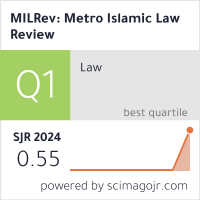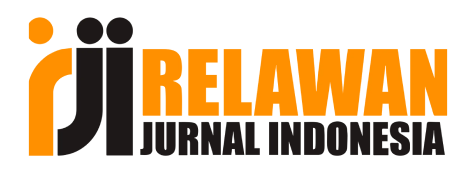Green Investment in Contemporary Islamic Perspective: A Maqasid al-Syari‘ah Analysis of the Mining Industry in Morowali
DOI:
https://doi.org/10.32332/milrev.v4i1.10269Keywords:
Green Investment, Maqasid al-Syari‘ah, Mining Industry, Sustainability, MorowaliAbstract
This study aimed to analyze the implementation of the green investment paradigm in Morowali’s mining industry based on the principles of maqasid al-shari‘ah. The research method used was a qualitative approach with descriptive analysis through literature studies, interviews with mining industry stakeholders, and observations of the environmental impacts caused by mining activities. The data were analyzed using the maqasid al-shari‘ah approach to evaluate the extent to which the mining industry in Morowali had implemented sustainability principles in its operations. The results showed that although some companies had adopted environmentally friendly practices, such as land reclamation and the use of waste processing technologies, many aspects still did not align with maqasid al-shari‘ah. Excessive resource exploitation, environmental pollution, and social inequality remained, which impacted the welfare of the local community. In conclusion, the application of green investment in the mining industry of Morowali still required optimization based on maqasid al-shari‘ah, particularly in the areas of hifẓ al-bī’ah (environmental protection), hifẓ al-nafs (protection of life), and hifẓ al-māl (protection of wealth). Within the framework of contemporary Islam, this study emphasized the importance of revitalizing maqasid al-shari‘ah as an ethical and strategic foundation for sustainable investment. The academic contribution of this research lies in the integration of maqasid al-shari‘ah in the analysis of green investment in the mining sector, which has been limited in previous studies. This study provides a new perspective on Islamic economics by highlighting how the principles of maqasid al-shari‘ah can serve as an ethical framework for sustainable investment.
Downloads
References
Almas, Antika Wulandari; Ummy. “Menelusuri Makna Term Fasād Dan Relevansinya Terhadap Kasus Kebakaran Hutan Dan Lahan : Analisis Atas Qs . Ar-Rum Ayat 41 Perspektif Tafsir Maqashidi.” Qudwah Qur’aniyah : Jurnal Ilmu Al-Qur’an Dan Tafsir; 2 (2024).
Anisa Zulfa Maqfirah, and Sudarmadi Putra. “Relasi Manusia Dengan Alam Semesta: Sebuah Kajian Literatur Islam.” JISOSEPOL: Jurnal Ilmu Sosial Ekonomi Dan Politik 2, no. 1 (2024): 16–24. https://doi.org/10.61787/2vbdek09.
Armawati, Tovan, Agung Budi Winoto, Arson abd. Rasyid Nunu. “Kebijakan Pengembangan Sektor Basis Sebagai Faktor Pendorong.” Bongaya Journal of Research in Management 7 (2024): 122–31.
Cindy, Suhety, Nely Rahma Wati, and Amalia Rizmaharani. “External Debt the State for Indonesia’S Economic Development in Perspetive of Islamic.” MILRev: Metro Islamic Law Review 1, no. 1 (2022): 134–46. https://doi.org/10.32332/milrev.v1i1.6195.
Hamizar, Arizal. “Pengaruh Faktor Sosial Dan Etika Dalam Perilaku Pengambilan Keputusan Investasi: Studi Kasus Pada Investasi Keuangan Syariah.” Amal: Jurnal Ekonomi Syariah 5, no. 01 (2023): 59–69. https://doi.org/10.33477/eksy.v5i01.5478.
Hendar. Jejen, Chotidjah. Nurul, Rohman. Abdul. “Implementasi Tanggung Jawab Sosial Perusahaan Pada Perbankan Syariah Ditinjau Dari Maqashid Syariah Implementation of Corporate Social Responsibility in Sharia Banking Reviewed.” Anterior Jurnal 20, no. 3 (2021): 70–79.
Insani, Nur, Zumiyati Sanu Ibrahim, Suud Sarim Karimullah, Yavuz Gönan, and Sulastri. “Empowering Muslim Women: Bridging Islamic Law and Human Rights with Islamic Economics.” De Jure: Jurnal Hukum Dan Syar’iah 16, no. 1 (2024): 88–117. https://doi.org/10.18860/j-fsh.v16i1.26159.
Mukti, Digdo Aji, Amira Fauzia Luberti, and Yumeiza Nurwinda Astuti. “Milrev, Vol. 1, No. 1, 2022.” 1, no. 1 (2022): 115–34.
Muthmainnah, Lailiy, Rizal Mustansyir, and Sindung Tjahyadi. “Meninjau Ulang Sustainable Development: Kajian Filosofis Atas Dilema Pengelolaan Lingkungan Hidup Di Era Post Modern.” Jurnal Filsafat 30, no. 1 (2020): 23. https://doi.org/10.22146/jf.49109.
Rasjuddin. “Perlindungan Hukum Pidana Terhadap Perusahaan Pertambangan Dalam Penanggulangan Kerusakan Lingkungan.” Jurnal Hukum Unissula 36, no. 1 (2020): 1–11. https://doi.org/10.26532/jh.v36i1.11180.
Ridha Hidayat, Azhari Yahya, M. Adli, Yul Ernis. “Analisis Yuridis Tanggung Jawab Sosial Dan Lingkungan Perusahaan Terhadap Masyarakat Sekitar (Legal.” Jurnal Penelitian Hukum: De Jure 19, no. 3 (2019): 339–48.
Rudi Pisteo, Fajar Sugianto, Sanggup Leonard Agustian. “Pemaknaan Kembali Terhadap Tanggung Jawab Sosial Dan Lingkungan Perusahaan.” Jurnal Hukum Magnum Opus 3, no. Nomor 1 (2020): 1–13.
Shabrina, and Rahmadhanti F. “Mendorong Program Pertumbuhan Ekonomi Hijau (Green Growth Economy) Melalui Transisi Energi Terbarukan Di Indonesia.” Journal Pedia 6, no. 3 (2024): 220–30.
Shen, Yanan, Saif Ur Rahman, Nabila Shahzadi Hafiza, Muhammad Saeed Meo, and Muhammad Sibt E. Ali. “Does Green Investment Affect Environment Pollution: Evidence from Asymmetric ARDL Approach?” PLoS ONE 19, no. 4 April (2024): 1–25. https://doi.org/10.1371/journal.pone.0292260.
Syahrani, Amelia Putri, Muhammad Adi Saputra, Arba Wahyu Arzaqi, and Raizky Rienaldy Pramasha. “Peran Ekonomi Hijau Dalam Pengelolaan Sumber Daya Alam Yang Berkelanjutan Amelia.” IJEN: Indonesian Journal of Economy and Education Economy 02, no. 01 (2024): 327–35.
Syarifuddin, Nurhayati. “Pengaruh Industri Pertambangan Nikel Terhadap Kondisi Lingkungan Maritim Di Kabupaten Morowali.” Jurnal Riset &Teknologi Terapan Kemaritiman 1, no. 2 (2022): 1090bqy90-688h6 879–23. https://doi.org/10.25042/jrt2k.122022.03.
Yuliastuti, Eka. “Peran Dan Gugatan Masyarakat Menurut Undang-Undang No. 23 Tahun 1997 Tentang Pengelolaan Lingkungan Hidup.” Jurnal Ilmiah Mizani: Wacana Hukum, Ekonomi Dan Keagamaan 6, no. 1 (2019): 61. https://doi.org/10.29300/mzn.v6i1.2200.
Downloads
Published
Issue
Section
License
Copyright (c) 2025 Mohamad Subli, Darussalam Syamsuddin, Abdul Rauf Muhammad Amin, Wahida Rahim, Sulaiman Sulaiman

This work is licensed under a Creative Commons Attribution-ShareAlike 4.0 International License.










